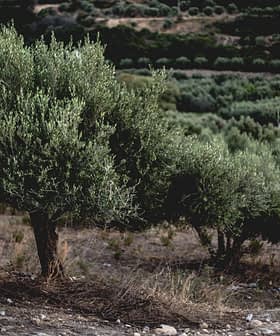Reforming Food Systems Crucial in Fight Against Climate Change, Report Finds

Global policy makers have not taken necessary food system reforms into account when formulating their respective plans to adhere to the Paris climate agreement, a new report from the United Nations, World Wildlife Fund and Climate Focus has found.
According to the report, the agriculture, forestry and land-use sectors account for up to 37 percent of all anthropogenic (human-created) greenhouse gas emissions and nearly one-quarter of the world’s total emissions.
See Also:Climate Change“Food systems are a neglected mitigation opportunity and there is rarely any mitigation opportunity with so many sustainable benefits,” Charlotte Streck, the co-founder and director of Climate Focus, said.
The report identifies sixteen ways in which policymakers can increase sustainability throughout the food production chain.
Addressing land-use change and agricultural emissions, reducing food loss and waste and shifting toward sustainable and healthy diets could make up 20 percent of the mitigation effort required to keep global temperature increases on the 1.5 ºC (2.7 ºF) target by 2050.
“With a systematic overhaul, food production could be part of the solution,” Emma Keller, the head of food at the World Wildlife Fund-UK said. “In practice, this means using farming methods that work with nature, restoring degraded or deforested land, shifting to more plant-based diets and crucially, not taking more than we need.”
The report recommended ways in which existing agriculture and ranching operations could be made more sustainable by improving drainage systems in areas that are prone to flooding, investing in synthetic fertilizer manufacturing and shifting away from mono-cropping.
Modernizing the agricultural transport and storage sector was also identified as a way to cut down both on greenhouse gas emissions and food waste in the post-harvest stages of the food system. According to the report, transport and storage reforms alone could cut emissions by six percent.
While most of the reforms were geared at direct participants in the agriculture and shipping sector, the report also focused on the role of consumers in cutting back on agricultural emissions.
The report emphasized that shifting to diets that are high in coarse grains, fruits, vegetables, nuts and seeds, along with limiting the intake of meat to 60 grams per person per day alone could reduce agricultural emissions by up to eight gigatons of carbon each year.
“Eliminating excessive meat consumption, improving storage facilities and reducing food waste is good for our health and improves food security,” Streck said. “With a checklist and concrete examples of activities and targets this report provides guidance for policymakers to integrate food systems in their national climate strategies.”








